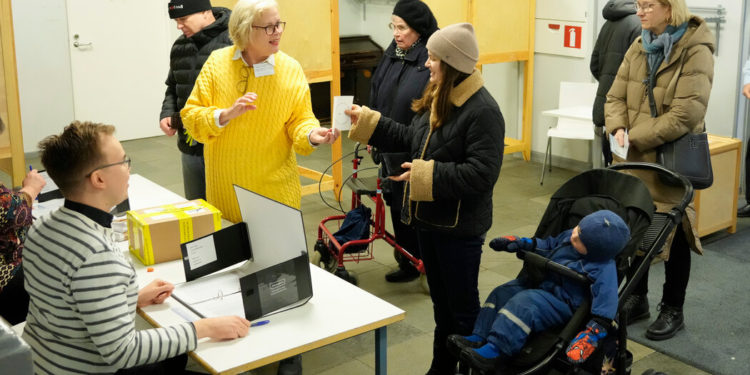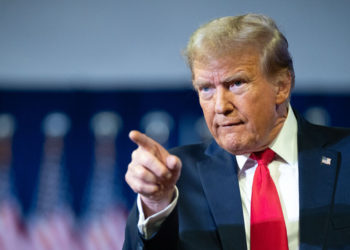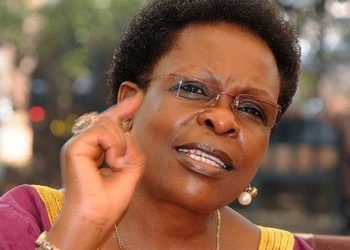By THE NEW YORK TIMES
Voters in Finland are casting ballots on Sunday in a presidential election that comes as NATO’s newest member faces the threat of an antagonistic Russia.
The election, which is expected to require a second round of voting, is for Finland’s first new head of state in 12 years. The country’s wildly popular president, Sauli Niinistö, has served two terms and is ineligible to run again.
Seen as a steadying force, Mr. Niinistö is considered the person most responsible for getting Finland into the NATO alliance, leaving whomever assumes the presidency with big shoes to fill.
From a field of nine candidates, the latest polls show two front-runners: Alexander Stubb and Pekka Haavisto. Both are familiar faces with strong foreign policy credentials.
Results in Sunday’s election are expected later Sunday. If no candidate receives more than half of the vote, a runoff election will be held on Feb. 11 between the top two first-round finishers.
While most European presidents occupy largely ceremonial roles, Finland’s drives foreign policy and serves as the commander in chief. That helped catapult Mr. Niinistö to global prominence after Russia’s invasion of Ukraine in February 2022 — and cemented his approval rating, which exceeds 90 percent.
“The most important decision of Sauli Niinistö’s presidency was to join NATO,” the retired political journalist Unto Hämäläinen wrote in the current issue of Finland’s Helsingin Sanomat magazine. “His term will be remembered for that after decades.”
The incoming president will not only draw comparisons to Mr. Niinistö, but will also be expected to build on his legacy, analysts say. First and foremost will be managing Finland’s integration into NATO amid concerns about potential Russian aggression and escalating tensions in the Baltic Sea region.
“The expectations are quite high for the successor,” said Juhana Aunesluoma, a professor of political history at the University of Helsinki.
Finland shares an 830-mile border with Russia, along with a combative history. The neighbors have fought numerous wars through the centuries, and Finns have strong memories of the 1939 Winter War and World War II, when their country fought the Soviet Union and lost territory. With the war in Ukraine continuing and Finnish officials accusing Russia of efforts to destabilize their country, analysts say that security is the primary issue on voters’ minds.
That is why, they say, voters are looking for a president with the broadest possible experience in foreign policy. The candidate pool reflects that.
“Even the liberal candidates have adopted a line that stresses military preparedness and border security,” said Johanna Vuorelma, a researcher at the University of Helsinki’s Center for European Studies.
Mr. Haavisto is making his third presidential run after losing out to Mr. Niinistö in the past two elections. A founder of the center-left Greens Party, Mr. Haavisto first ran for Parliament in 1987 and has been a staple of Finnish politics since, serving as a lawmaker, a U.N. official and in several government roles. Most recently, he was Finland’s foreign minister from 2019 to 2023.
Mr. Stubb is also a former foreign minister and a former prime minister. A prominent member of the center right, he left Finnish politics in 2017 and swore not to return, but he has said that Russia’s invasion of Ukraine changed his mind.
The candidates agree on most foreign policy matters, including NATO membership, securing the country’s border with Russia and how to handle Moscow.
That has made the differences in their personalities all the more important to voters, according to analysts. Since the campaign season got into full swing this past summer, the candidates have toured Finland to meet voters at schools, gas stations, shopping malls and markets. Mr. Stubb, an Ironman triathlete, has often appeared at sporting events. Mr. Haavisto has adopted the stage name “DJ Pexi” and spun records at student events to appeal to younger voters.
Debates have been dignified and polite, a contrast to parliamentary election campaigns, which are often rowdy. Both Mr. Haavisto and Mr. Stubb have cast themselves as unifiers during the campaign, most likely because of expectations that the election will go to a runoff.
Voter turnout in Finland, a country of 5.6 million people, has tended to be around or above 70 percent for presidential elections. More than 1.8 million Finns, or 44 percent of the country’s eligible voters, have already cast their ballots in early voting, according to preliminary data.
Cassandra Vinograd contributed reporting from London.








Discussion about this post